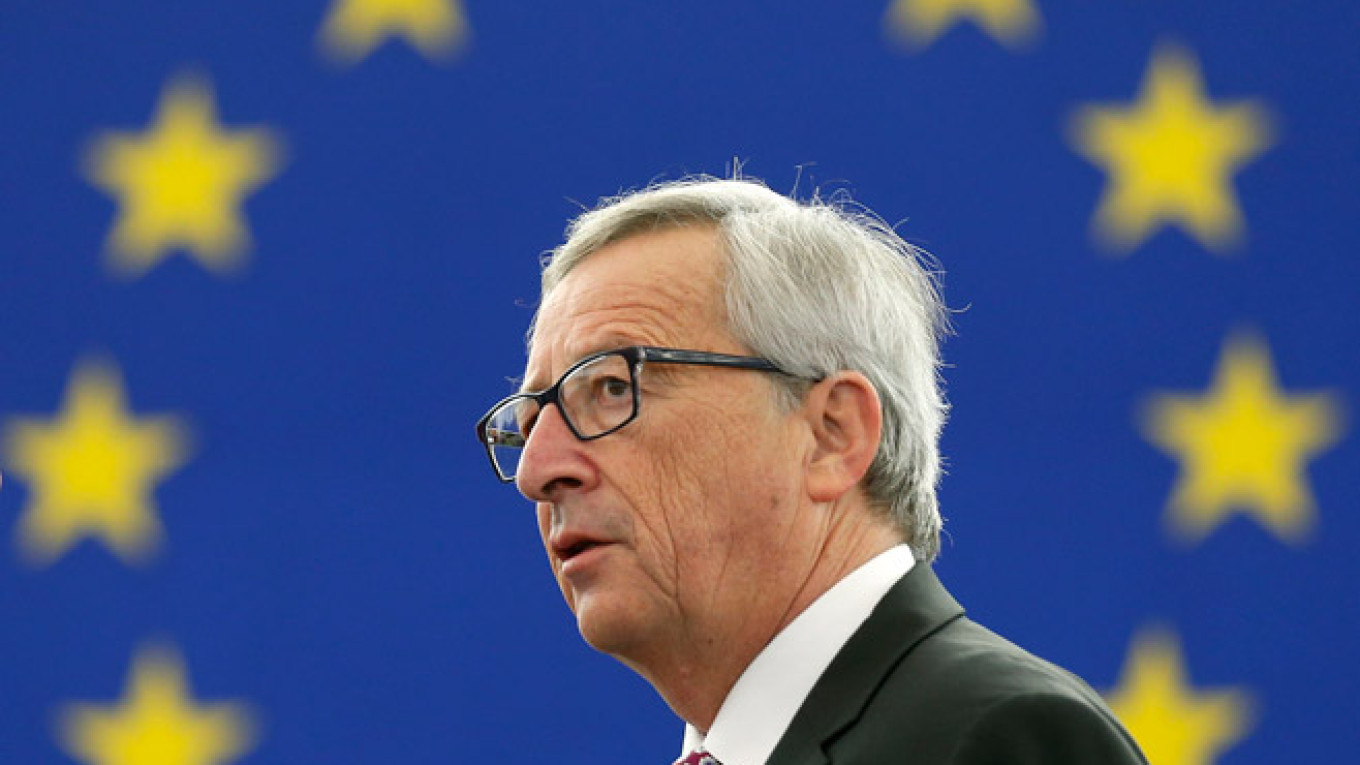MOSCOW/BRUSSELS — Russia urged the European Union on Saturday to lift sanctions against Moscow and promised to waive its food embargo, but a top EU official rejected such a move as the bloc imposed fresh measures on Ukrainian rebels.
The European Union and the United States imposed economic sanctions on Russia in late July, targeting the Russian energy, banking and defense sectors to punish Moscow's support for rebels in eastern Ukraine, the West's toughest steps yet.
In retaliation, Moscow has banned most Western food imports, worth $9 billion a year.
"We don't expect anything from our European partners. The only thing we expect is for them to leave the meaningless sanctions spiral and move onto the path of lifting the sanctions and dropping the blacklists," Russia's deputy foreign minister, Alexei Meshkov, was quoted as saying by the Interfax news agency.
"This, in turn, would allow us to drop our lists."
The gesture from Moscow came as the European Union imposed sanctions on 13 Ukrainians accused of organizing rogue elections in eastern Ukraine on Nov. 2, hitting the separatists and their organizations with asset freezes and travel bans.
Jean-Claude Juncker, the new president of the European Commission, said Russia's annexation of Ukraine's Crimea region in March left Europe with two options: go to war against Russia or impose economic sanctions.
"If you don't want a war the only possibility is sanctions. … You have to take sanctions that produce an effect," Juncker told RTL radio in Luxembourg, his home country.
"One has to maintain those sanctions as long as, on the ground, we do not see Russian gestures aimed at pacifying the region," he said, referring to Ukraine.
Earlier this week, Russian Finance Minister Anton Siluanov said lower oil prices and Western financial sanctions will cost Russia around $130-$140 billion a year, equivalent to around 7 percent of its economy.
Meshkov put the losses from sanctions for the EU at $50 billion next year, adding that trade turnover in some products between Russia and Europe had declined by double digit percentages.
A Reuters report this month showed that European exports to Russia fell almost 20 percent in August compared to July because of the sanctions.
Juncker said he did not see the point of constantly threatening more sanctions but warned that more measures could come if Moscow did not take steps to resolve the conflict in eastern Ukraine.
EU officials are concerned that a September cease-fire in Ukraine is not being upheld and say that the vote by rebels in eastern Ukraine was encouraged by Russia to undermine Kiev's sovereignty.
Rebels argued the Nov. 2 vote was the next step after local referendums in May calling for independence from Ukraine.
The United States and European Union denounced the vote as "illegal and illegitimate," but Russia has said it would recognize the result, deepening a crisis that began with the popular overthrow of Ukraine's Moscow-backed president in February and Russia's annexation of the Crimean peninsula.
In its official journal, the European Union said Sergei Kozyakov, who was election commission chief in the Luhansk region, "has actively supported actions and policies that undermine the territorial integrity, sovereignty and independence of Ukraine."
Others on the sanctions list are election organizers and separatist ministers in Luhansk and in the eastern region of Donetsk. They are accused of the same wrongdoing as Kozyakov.
A Message from The Moscow Times:
Dear readers,
We are facing unprecedented challenges. Russia's Prosecutor General's Office has designated The Moscow Times as an "undesirable" organization, criminalizing our work and putting our staff at risk of prosecution. This follows our earlier unjust labeling as a "foreign agent."
These actions are direct attempts to silence independent journalism in Russia. The authorities claim our work "discredits the decisions of the Russian leadership." We see things differently: we strive to provide accurate, unbiased reporting on Russia.
We, the journalists of The Moscow Times, refuse to be silenced. But to continue our work, we need your help.
Your support, no matter how small, makes a world of difference. If you can, please support us monthly starting from just $2. It's quick to set up, and every contribution makes a significant impact.
By supporting The Moscow Times, you're defending open, independent journalism in the face of repression. Thank you for standing with us.
Remind me later.


